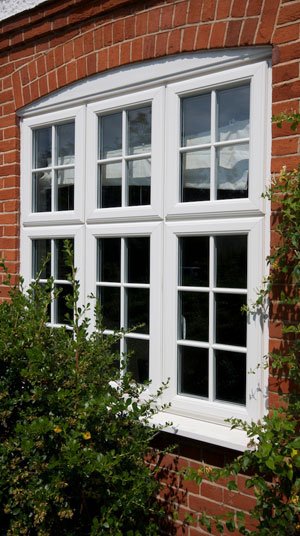‘This product meets the demand and needs of those who wish to protect the cost of repairs or replacements covered by a Plastics Window Federation member contractors guarantee should that contractor cease to trade.’
The need for the federation
- For many years the general public was not protected to a satisfactory degree. Companies have offered a guarantee but some have not been able to fulfil their obligations due to liquidation or ceasing to trade.
- Should you need to make a complaint to the Federation details of the procedure are shown below.
- The Federation will ensure to the best of its ability that complaints are dealt with quickly and the necessary action is taken immediately.
Aims of the federation
- To protect the general public as an independent body when purchasing PVC-u products from its members should they cease trading.
- To ensure to the best of the Federation’s ability that its members follow the rules laid down by the Federation.
- To give advice and information to the public as to recommended systems and installation methods.
- To offer an independent surveying service in cases where a dispute has occurred between the customer and the member company.
- To ensure that protection within the terms of the Policy of insurance is given to the customer in the event of a member company not being able to honour its own guarantee due to ceasing to trade.
In the event of you having a complaint against a member of the Federation, follow the procedure below.
Write to the Federation at the address overleaf giving the following information.
- Name of the company in question, details of the complaint, date the order was placed, date when the work was carried out, address at which the installation was carried out, address at which you can be contacted, telephone numbers Day/Evening.
- What steps you have already taken to obtain satisfaction from the company and what, if anything, they have done.
Any dispute or difference arising out of or in connection with a contract with the installer shall be determined by the appointment of a single arbitrator to be agreed between the parties, or failing agreement within fourteen days, after either party has given to the other a written request to concur in the appointment of an arbitrator, by an arbitrator to be appointed by the President or Vice President of the Chartered Institute of Arbitrators.
Insurance
The criteria for insurance is that the installation has been completed by a member company and that the products installed were those constructed from PVC-U/Aluminium profiles.
Once an installation is completed the member installing company will make an online application for insurance. The Federation will make application to the insurance company for acceptance.
The Federation will provide, online to the member installer, confirmation of acceptance.
The member installer will download the certificate of insurance and policy terms and forward to the customer.
Should the certificate not be received within 14 days of completion of works notification should be sent in writing to the Federation.
Once you have received your Certificate of Insurance please keep it in a safe place with your contract as these documents will be required in the event of a claim being made.
The insurance protection is available as a 5 year or a 10 year policy and including commercial cover.
C & L Windows and Conservatories LTD
65, Seymour Road
Gloucester
Gloucestershire
GL1 5PT
65, Seymour Road
Gloucester
Gloucestershire
GL1 5PT
01452 526028
www.candlwindows.co.uk

 Customers today want the finest in insulated and thermally efficient windows and a byproduct of this is superior efficiency. A rated PVC-u windows, supplied as standard by C & L Windows may be prone to external condensation. It is simply the window and the glass doing its job of keeping the heat in. For those that are more technically minded, Pilkington Glass, who many will know as the world’s largest producer of glass say:
Customers today want the finest in insulated and thermally efficient windows and a byproduct of this is superior efficiency. A rated PVC-u windows, supplied as standard by C & L Windows may be prone to external condensation. It is simply the window and the glass doing its job of keeping the heat in. For those that are more technically minded, Pilkington Glass, who many will know as the world’s largest producer of glass say: